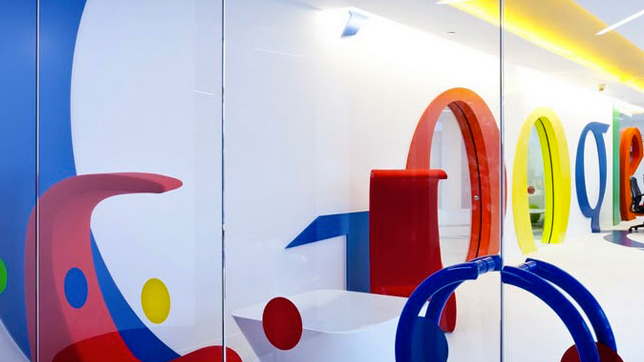Silver linings: How Google wants to beat Amazon and Microsoft in the cloud
Google means business in the cloud arena

Google is a pretty old company compared to most internet giants. Facebook, which now connects over 1.6 billion people every month, was founded in 2004. Twitter, where most breaking news happens, was founded in 2006. LinkedIn, the social media outlet for the world of work, was founded in 2003. Google, on the other hand, was founded in 1998.
The internet is what made Google into the behemoth it is today. Billions of people visit its search engine every week, billions more use Android, and – if everything goes to plan – Google's 'moonshot' projects will be used by billions more also.
Alphabet is the company that controls Google and said moonshots, which include Google Capital (not related to the search engine), Verify (a health and medical research company), Google Fibre, Calico (a biotech research company), and many more.
The parent company was created as a way to help Google investors understand the other portions of its business that aren't related to search advertising, where it derives billions of dollars in revenue every quarter.
Back in 1998, Google was a search engine that trumped its rivals – including big companies like AOL and Yahoo – by indexing the web more effectively, drawing the best results to the top. Indexing these pages, which revolves around the process of seeing how many in- or out-links there are, requires a lot of computing power which made Google one of the first large-scale cloud computing businesses.
Data centre empire
Google currently has 15 major data centres located around the world, in places ranging from Jackson County, Alabama, through Eemshaven, in the Netherlands, to Singapore. These centres are essentially banks of powerful computers humming away 24 hours per day, 7 days per week, to deliver searches, pictures, and information to billions of people.
What these data centres also provide is the kind of processing power the company would need to run a more-than-successful, fully-featured cloud computing business.
Are you a pro? Subscribe to our newsletter
Sign up to the TechRadar Pro newsletter to get all the top news, opinion, features and guidance your business needs to succeed!
At present, Google is currently in third place when it comes to cloud computing. Amazon, a company many consider an online retailer, is top dog, and Microsoft is second, according to research firm Gartner, which regularly analyses the products released by the three companies.
- Also check out: How Amazon can maintain its momentum with AWS
Longer but not stronger
This outcome is surprising because Google has been doing cloud computing – the catch-all term for providing a heap of computing power remotely for intensive tasks before sending the data somewhere else – for longer than both Microsoft and Amazon, thanks to its primary business of search.
Back in the late 1990s and early 2000s, Amazon was just getting started with and wanted to grow its e-commerce business, and Microsoft was fixated on getting Windows onto every PC in the world. Neither of these goals were related to the cloud in any particular way.
Google, on the other hand, was starting to handle a high volume of queries about a huge range of topics, all of which had to be interpreted, the sites ranked, and the results returned in a fraction of a second. Over time, the algorithm has become more complex to cater for individual user needs based on the things they have searched for in the past and what that infers about them.
17 years of doing all of that – and more, especially after the launch of Android in 2008 – means that Google should be way ahead of its rivals in the cloud, but that isn't the case.
Victim of its own success
In some ways, Google has been a victim of its success elsewhere. Android is now used on around two billion handsets and its search business competes directly with Facebook for around 80% of the dollars spent on advertising online. These two success stories required big teams and commitment.
The 'distraction', however, has cost Google a business that will generate Amazon around $10 billion in revenue next year, almost all of which is profit, thanks to the ever-decreasing price of hosting information on supercomputers.
But that isn't to say Google isn't now trying.
Max Slater-Robins has been writing about technology for nearly a decade at various outlets, covering the rise of the technology giants, trends in enterprise and SaaS companies, and much more besides. Originally from Suffolk, he currently lives in London and likes a good night out and walks in the countryside.